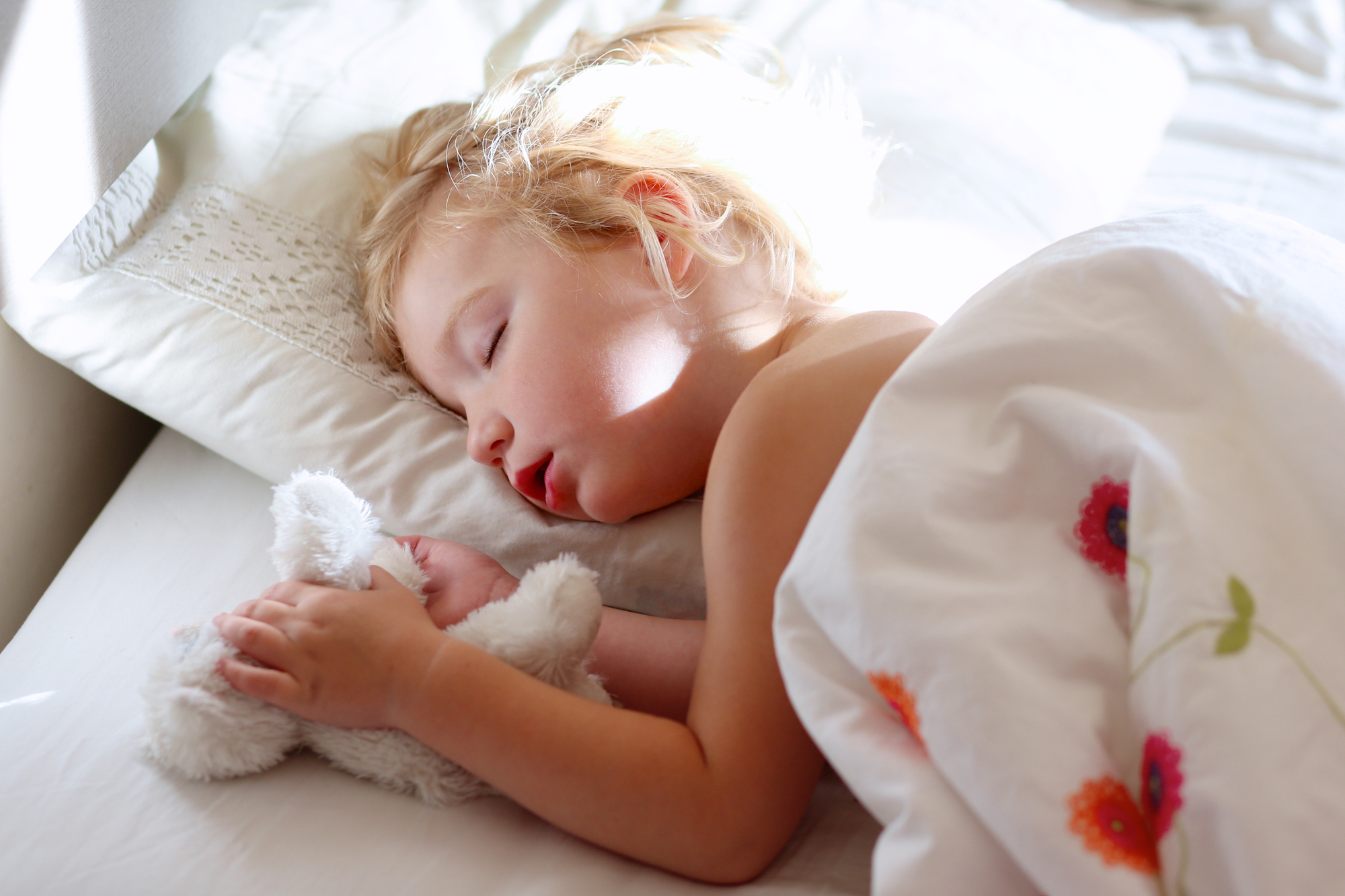By Dr Sandy Hopper
What most parents remember about the hazy, first days of having a newborn is not just the incredible feeling of love for their new baby, but the seemingly endless sleepless nights; those 2 am feeds and 5 am cries. It’s a guaranteed topic at any gathering of new parents, and, when your newborn finally sleeps through the night, you are the envy of all your friends.
So, let’s fast forward a few years when your now toddler faces a disrupted routine through illness, holidays, travel – or just being a toddler – and they turn into yet, again, a sleepless monster.
Remember, don’t blame yourself! Insomnia at one time or another is very normal, as diurnal rhythms are finely tuned and anything can push them out of kilter. There will always be ups and downs, and if you have a partner, take it in turns to settle your child so you don’t lose patience.
However, the good news is although you can’t force someone to sleep, you can provide them the ideal set-up to induce a peaceful rest and re-settle if they wake in the middle of the night.
Firstly, let’s look at how getting to sleep works for an adult. You’re tired, it’s night-time, you slow down your body and brain, get comfortable, and, with no distractions, you lazily drift off into the land of nod. When you wake during the night (and most of us do), you gently drift back to sleep using your own settling techniques. And before you know it, it’s morning and you feel refreshed and ready for the day!
So, thinking about this, you can figure out how to help your child sleep.
- Being tired. Exercise and being busy during the day will help your little one sleep. It also improves their mood and general health.
- It’s night-time. Different ages need different amounts of sleep, and bedtime depends on what time your toddler needs to wake up. In general, make sure they head to bed at the same time every night to give them enough sleep time. Making this a hard and fast rule will work for both you and your child as it reduces arguments and takes advantage of the diurnal clock we all have.
- Slow down the body and brain. No screens (including television) for at least an hour before bed. Create and maintain a 20-minute bedtime routine to prepare for sleep and to wind down. A warm bath, cleaning teeth, donning clean sleepwear, and reading (or being read to). Avoid giving your child anything containing caffeine – like chocolate — from the afternoon onwards.
- Get comfy. A cool, dark, quiet room, a comfortable bed – make sure there are not too many heavy blankets or doonas – with no distractions. You may need to have your child’s toys and games in a separate room. Quieten the house. Turn down the television and ask your older children to keep their voices down. Make sure the curtains or blinds actually work.
And there you go – you have created the ideal conditions for your toddler to blissfully drift off to sleep!
From there, it’s up to them. As a parent your next job is to provide quiet reassurance that they will drift off soon. It’s a balance on what this looks like – you want to be there for them and comfort them, but you don’t want to be the person who has to create the trigger to sleep.
So, a gentle pat or touch with a short soothing phrase will work well, but lying down next to them or providing an elaborate trigger (tickling, singing) might set you up for needing to do this for every time they wake. (If, of course, if you are fine with doing this, there is no problem).
As time goes on, your child will learn the skills to initiate and re-initiate sleep on their own. And hopefully, everyone in the house will get a better night’s sleep.

Associate Professor Sandy Hopper, a Paediatric Emergency Medicine Physician, is the Chief Medical Officer and co-founder of KidsDocOnCall, a 24/7 national children’s medical telehealth service. He is also Associate Professor of Paediatrics at the University of Melbourne. The dad of two teenage boys understands the stresses of parenthood and is driven to helping Australian children lead their happiest and healthiest lives. Find out more at kidsdoconcall.com.au or download the app.






